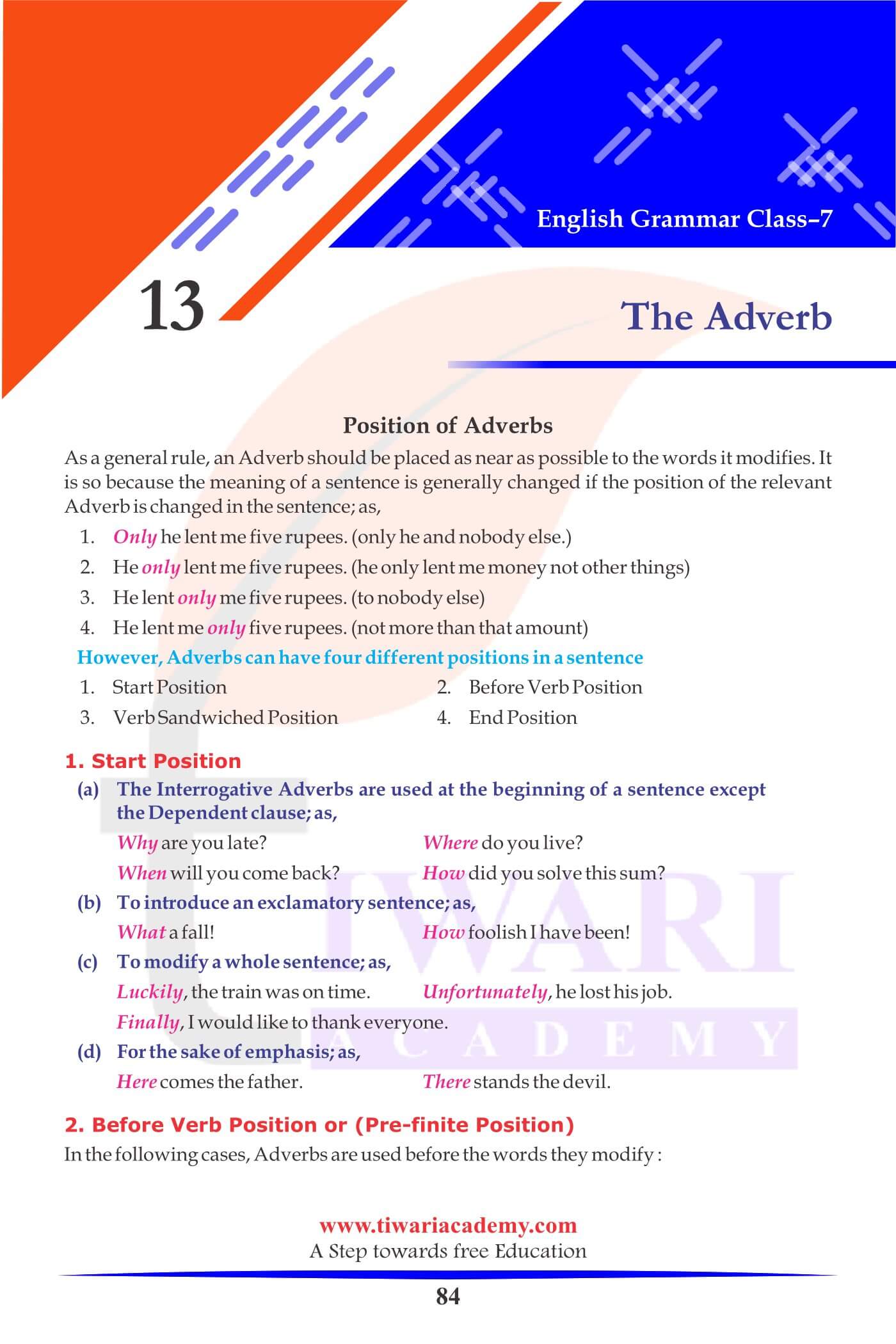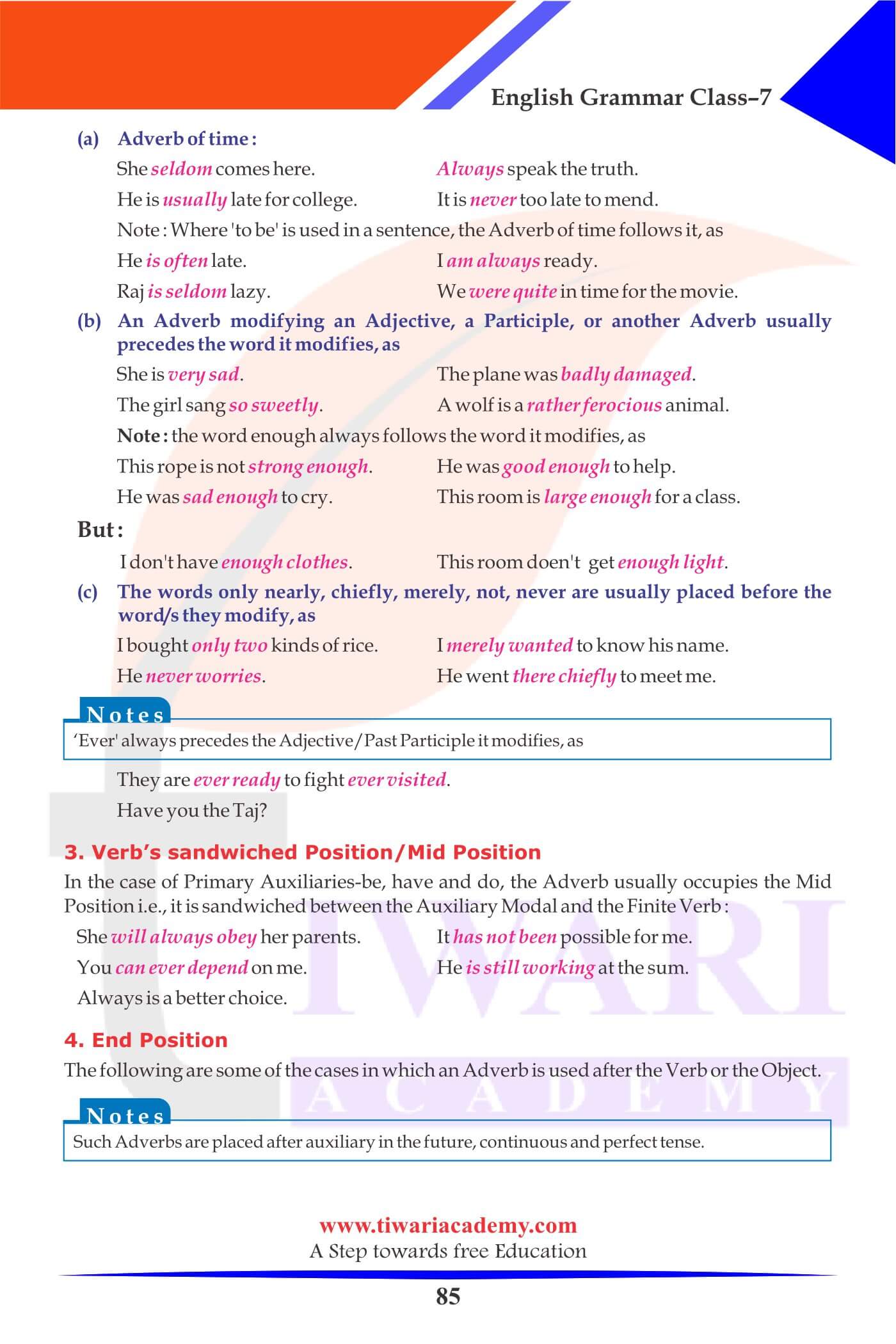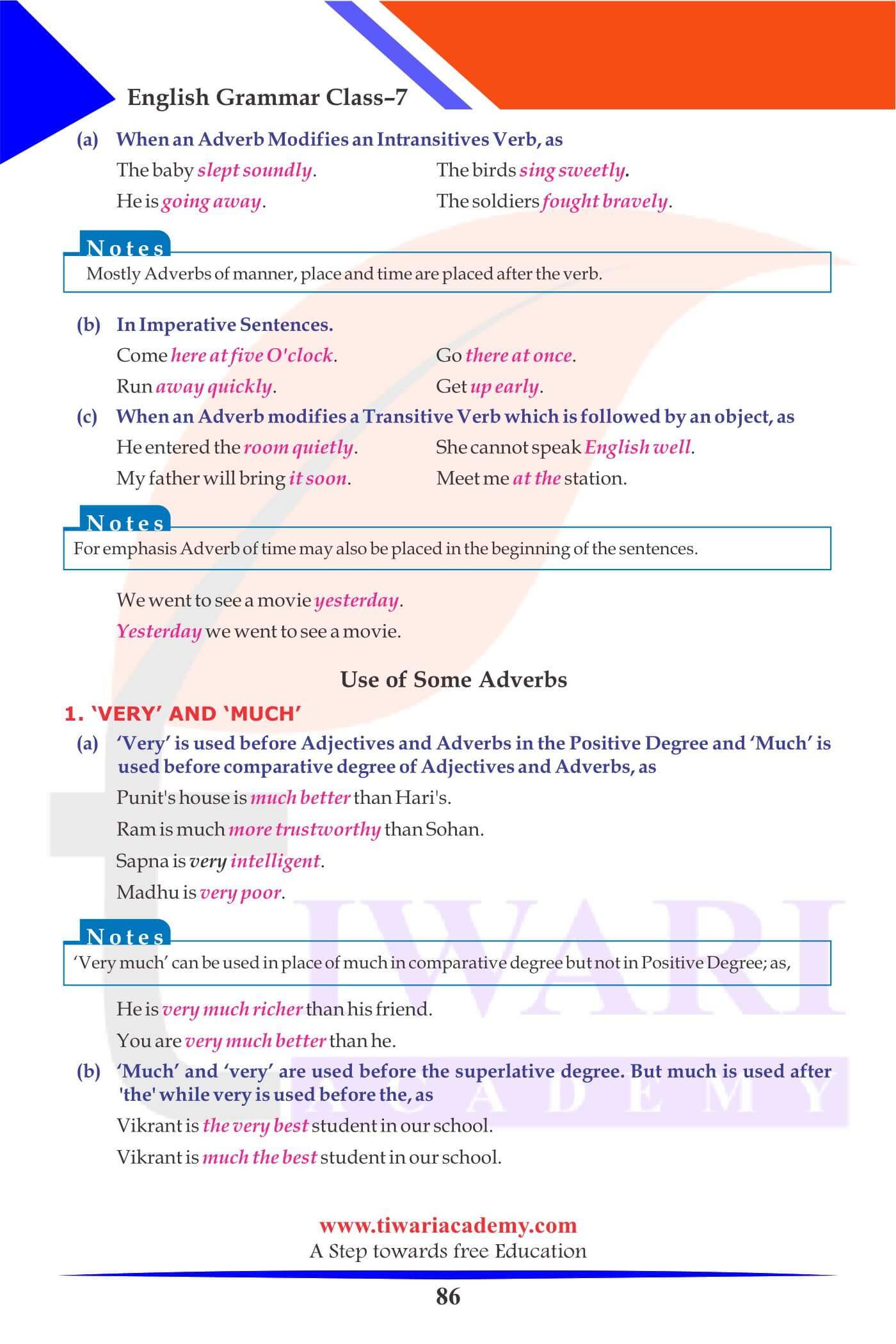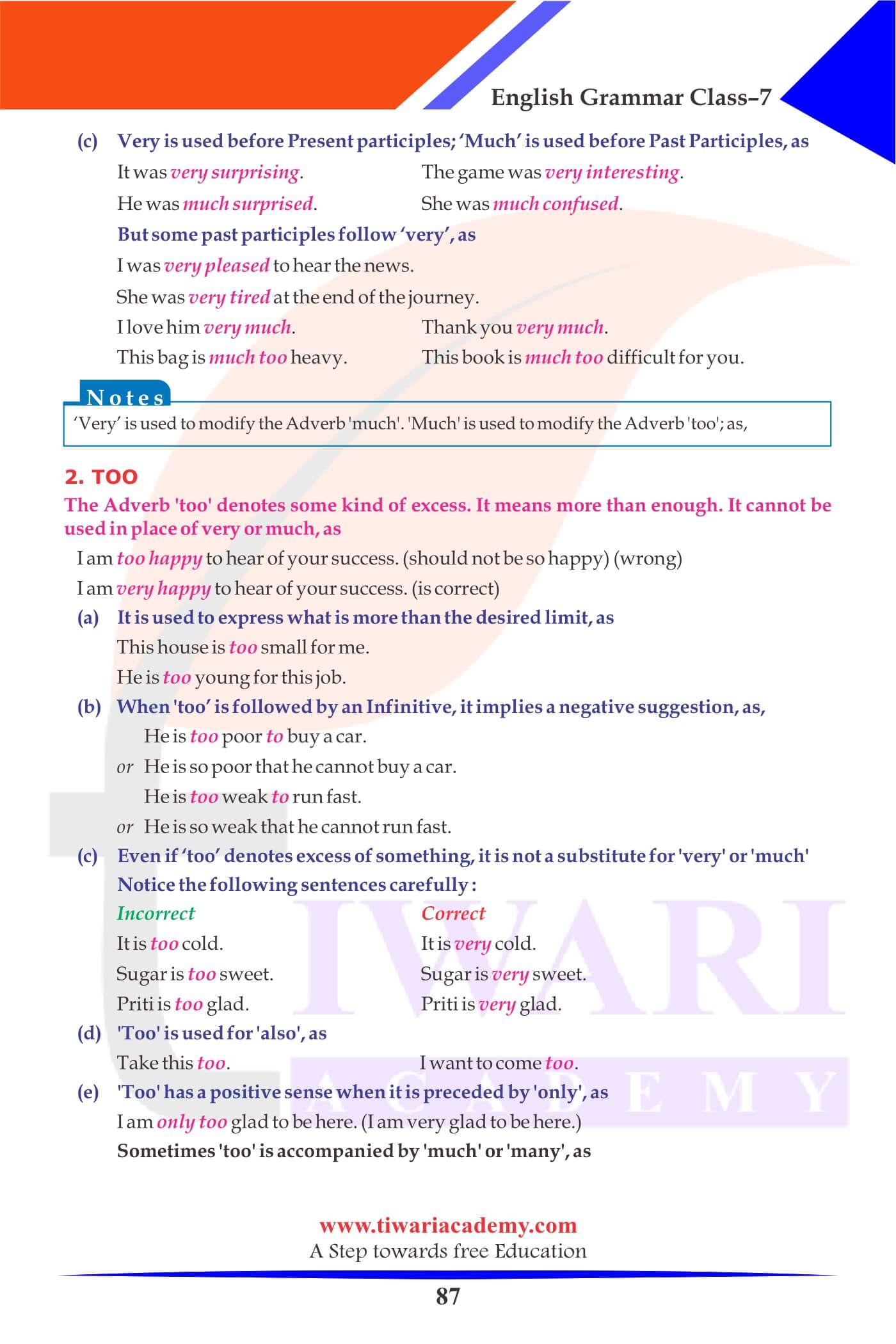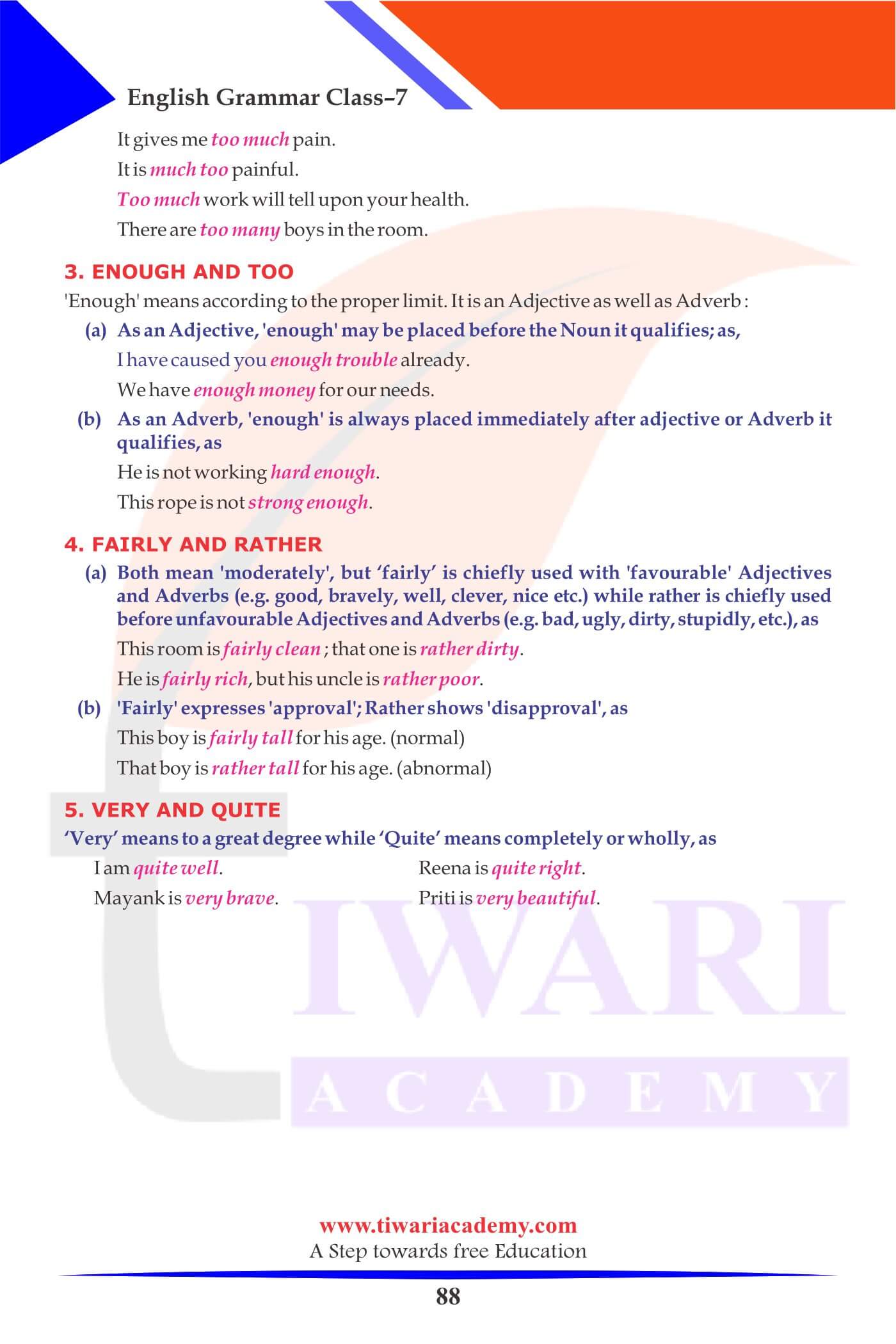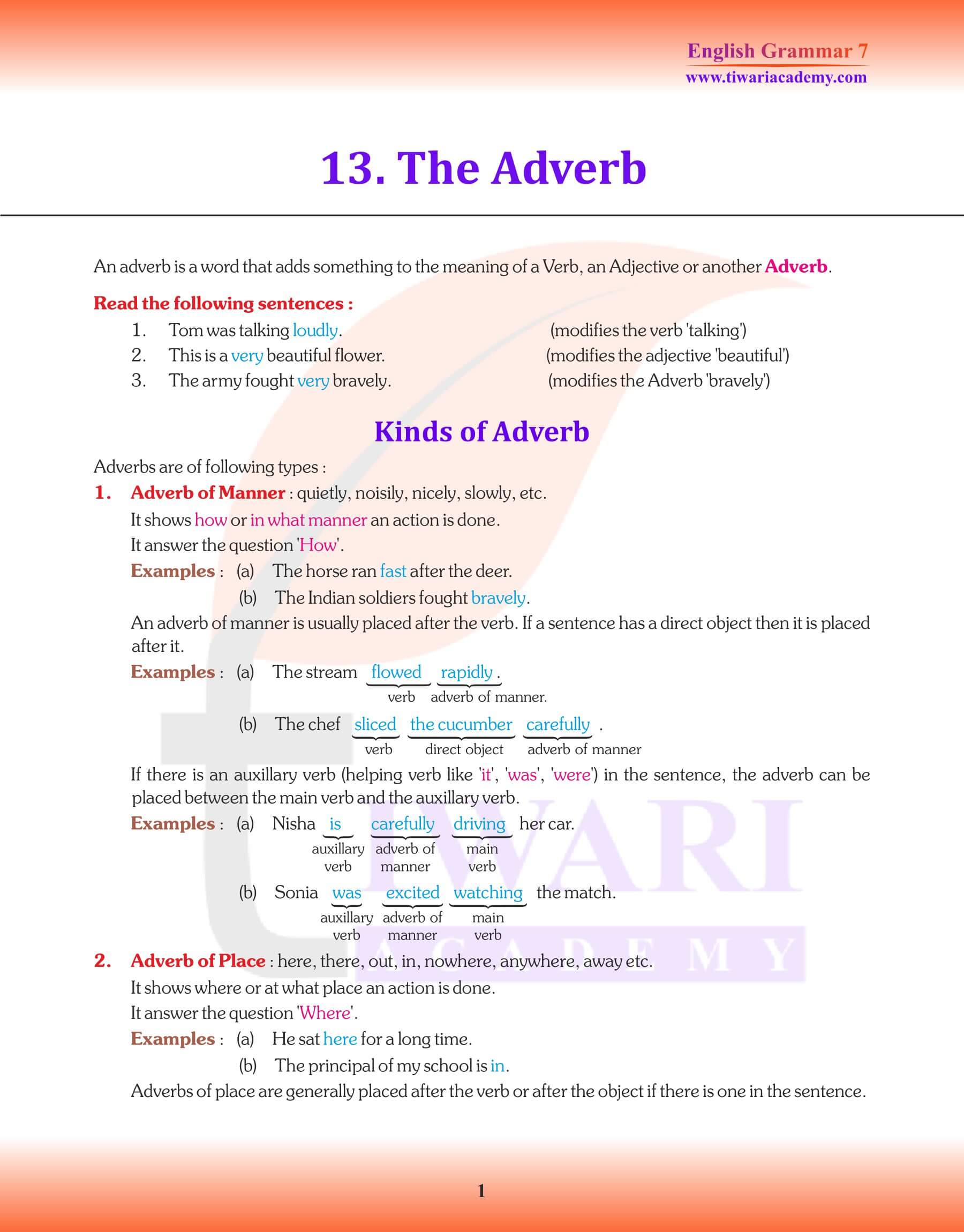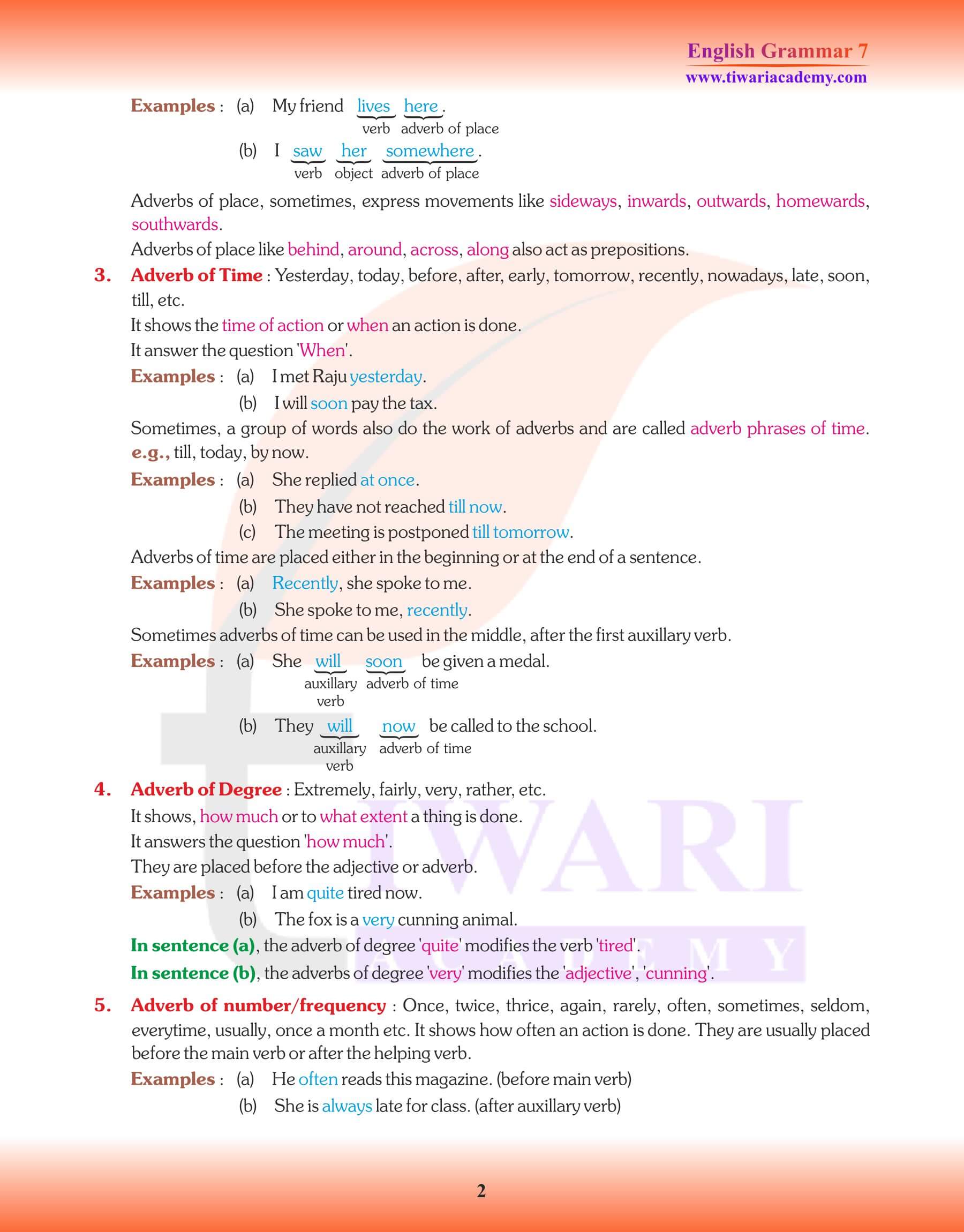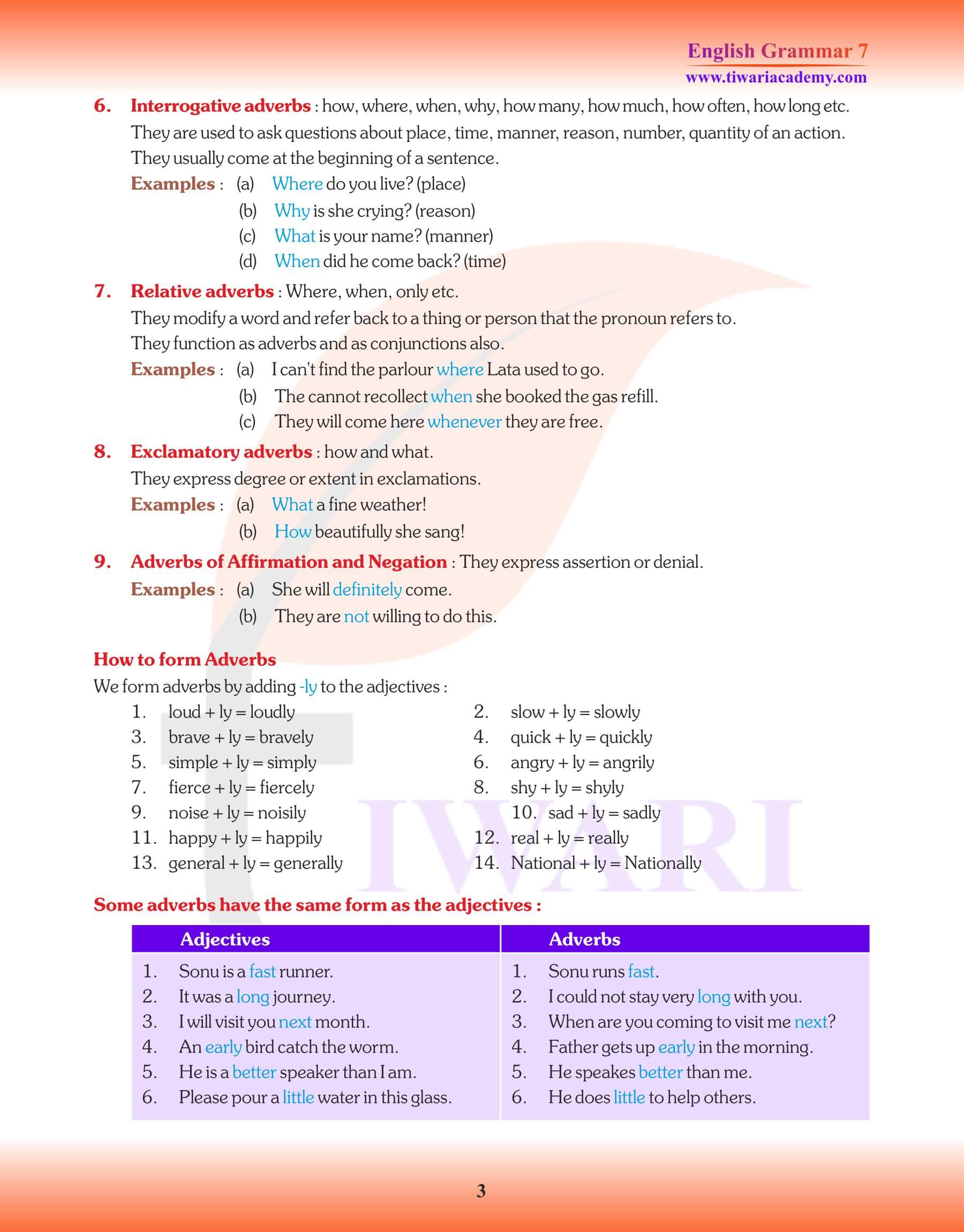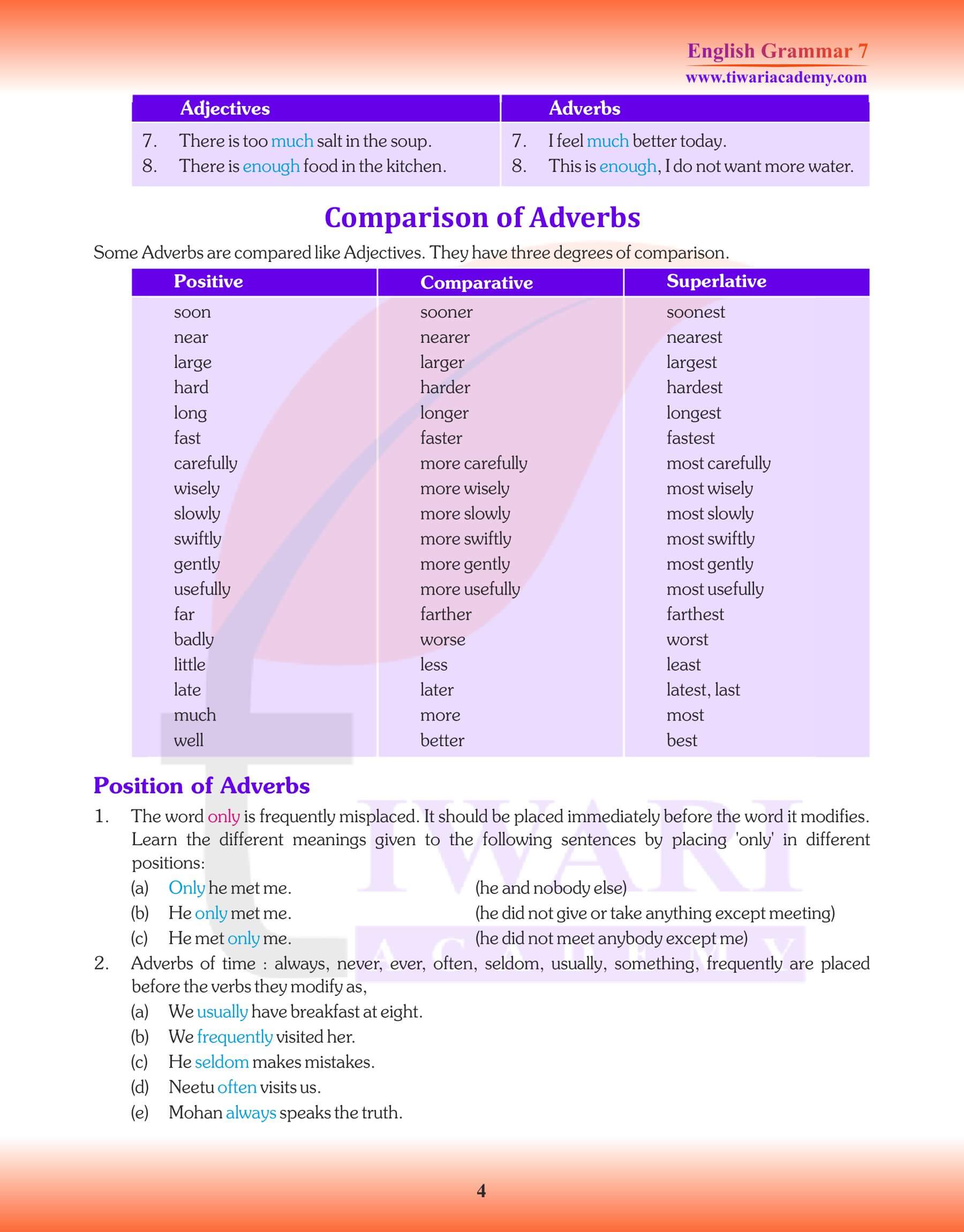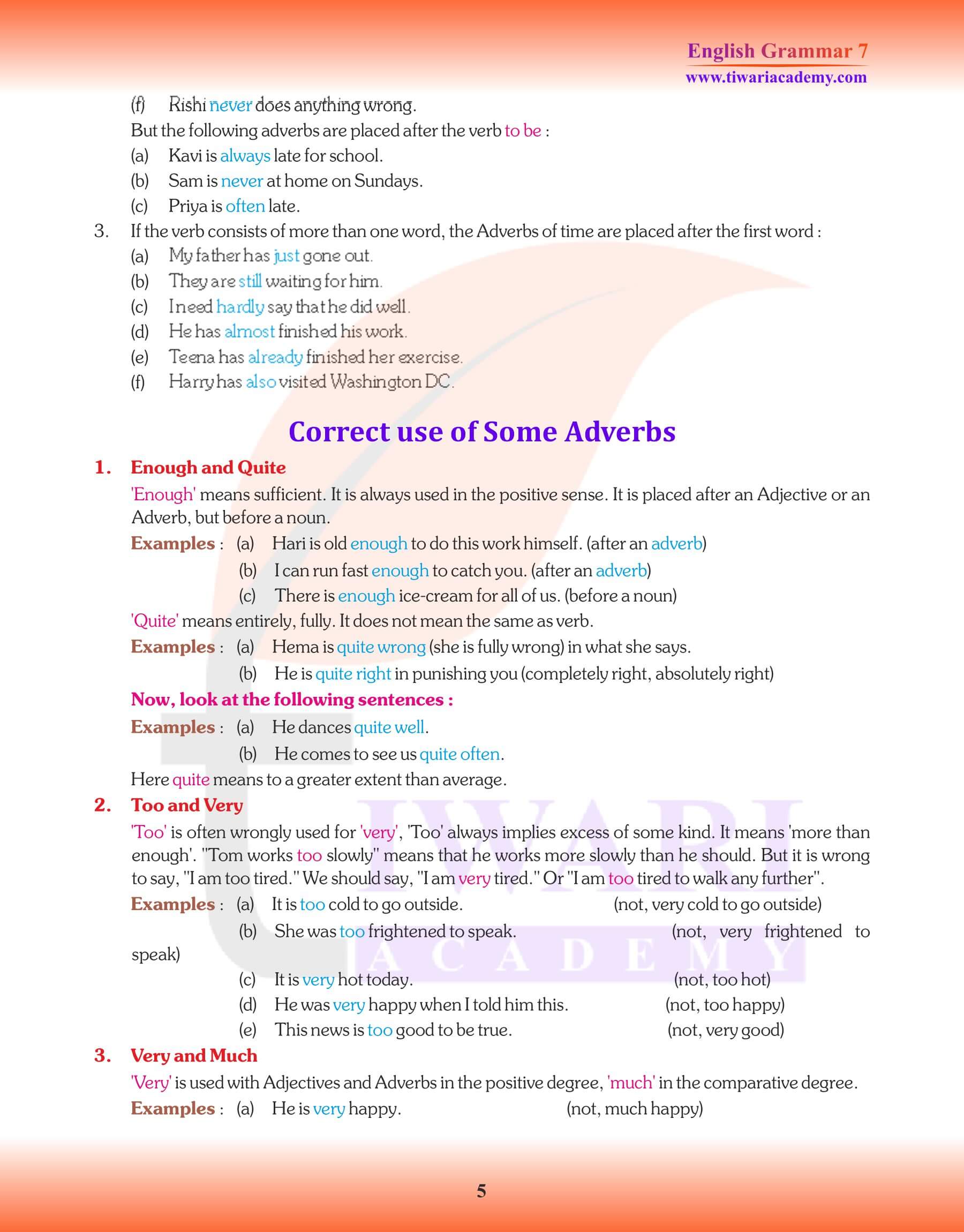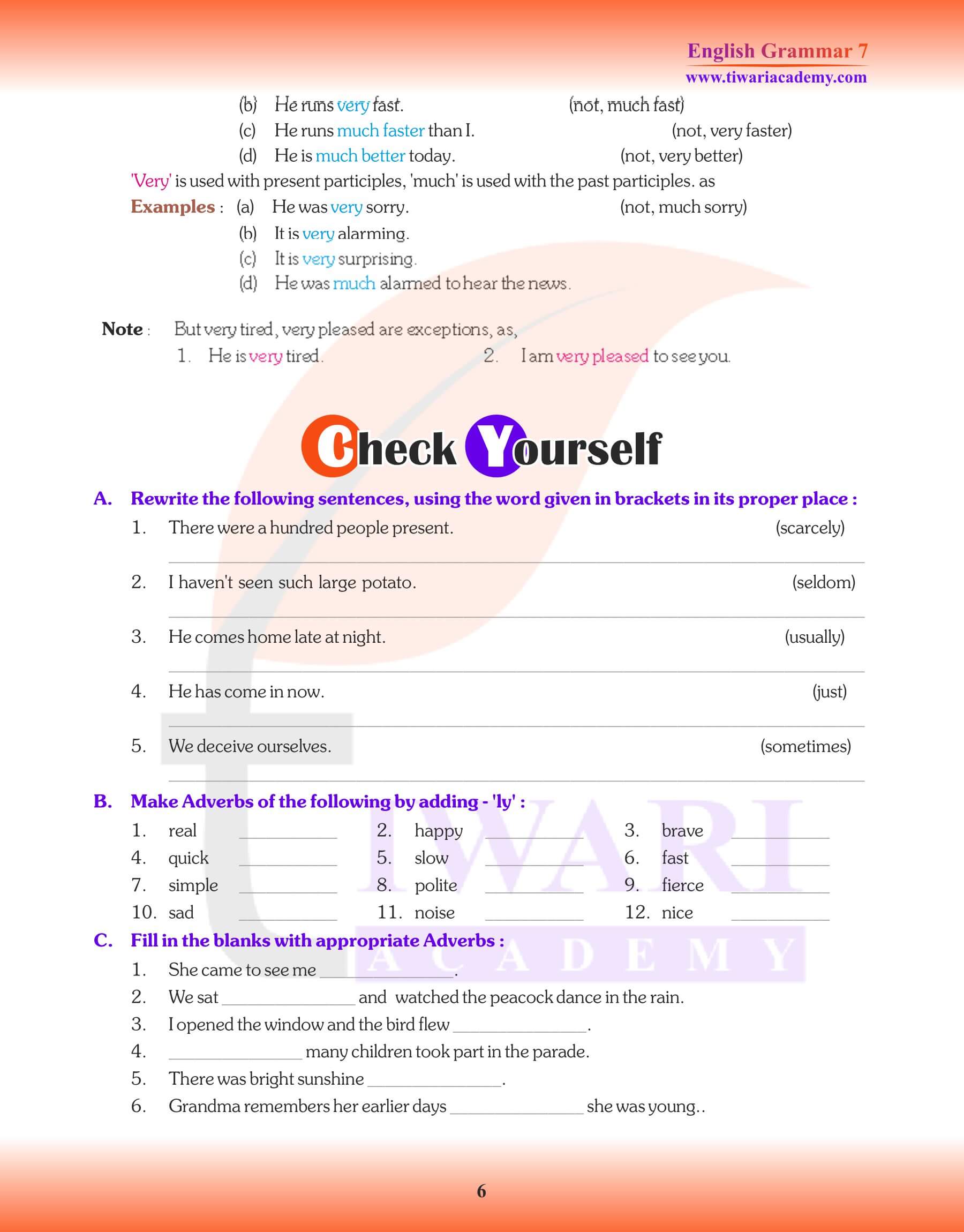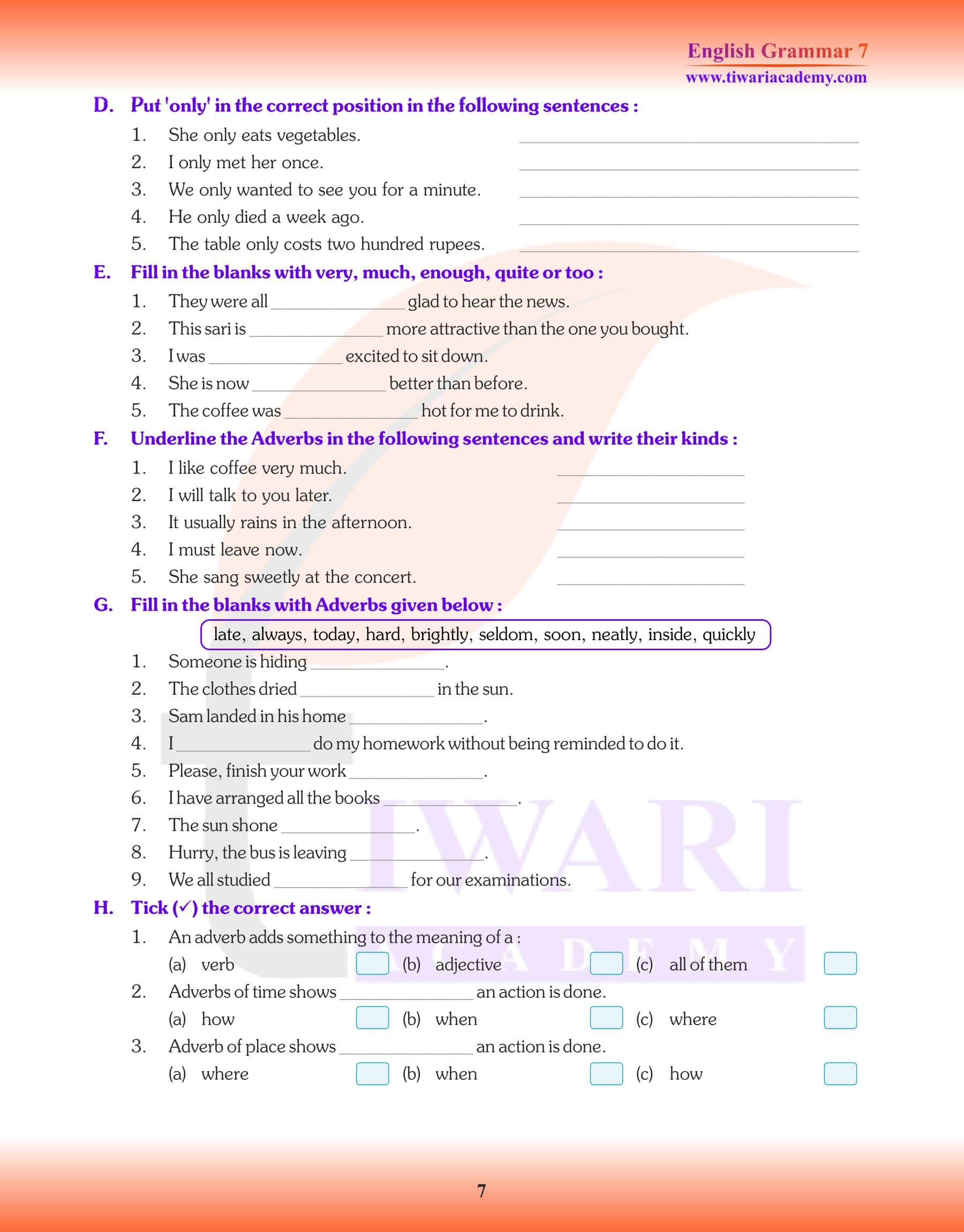Class 7 English Grammar Chapter 13 The Adverb. As a general rule, an Adverb should be placed as near as possible to the words it modifies. It is so because the meaning of a sentence is generally changed if the position of the relevant Adverb is changed in the sentence. For example, Only he lent me five rupees. (only he and nobody else.), He only lent me five rupees. (he only lent me money not other things), He lent only me five rupees. (to nobody else) and He lent me only five rupees. (not more than that amount).
The art of constructing meaningful sentences in the English language is significantly influenced by the versatile adverb. Chapter 13 of Class 7 English Grammar throws light on this essential component, emphasizing its critical placement in sentences. Adverbs possess the power to modify words, giving clearer context to actions and situations. Their placement is paramount, as shifting an adverb within a sentence can drastically change its intended meaning, often leading to varied interpretations.
| Class: 7 | English Grammar |
| Chapter: 13 | The Adverb |
| Session: | 2024-25 |
| Study Material: | Textbook and Notes |
Use of Adverbs in Start Position
The Interrogative Adverbs are used at the beginning of a sentence except the Dependent clause.
- Why are you late?
- Where do you live?
- When will you come back?
- How did you solve this sum?
Take, for instance, the phrase “He lent me five rupees.” By introducing the word ‘only’ in various positions, we uncover diverse meanings: “Only he lent me five rupees” suggests exclusivity of the person, while “He lent me only five rupees” implies a limitation on the amount. As we navigate through English grammar, understanding the nuanced placements and interpretations of adverbs becomes crucial for students, ensuring clarity and precision in communication.
Use of Adverbs Before Verb Position
She seldom comes here.
Always speak the truth.
He is usually late for college.
It is never too late to mend.
An Adverb modifying an Adjective, a Participle, or another Adverb usually precedes the word it modifies.
- She is very sad.
- The plane was badly damaged.
- The girl sang so sweetly.
- A wolf is a rather ferocious animal.
The words only nearly, chiefly, merely, not, never are usually placed before the word/s they modify.
- I bought only two kinds of rice.
- I merely wanted to know his name.
- He never worries.
- He went there chiefly to meet me.
Adverbs at Verb’s Mid Position
In the case of Primary Auxiliaries-be, have and do, the Adverb usually occupies the Mid Position i.e., it is sandwiched between the Auxiliary Modal and the Finite Verb.
- She will always obey her parents.
- It has not been possible for me.
- You can never depend on me.
- He is still working at the sum.
Adverbs at End Position
The following are some of the cases in which an Adverb is used after the Verb or the Object. Such Adverbs are placed after auxiliary in the future, continuous and perfect tense. Mostly Adverbs of manner, place and time are placed after the verb.
- The baby slept soundly.
- The birds sing sweetly.
- He is going away.
- The soldiers fought bravely.
- Come here five O’clock.
- Go there at once.
- Run away quickly.
- Get up early.
